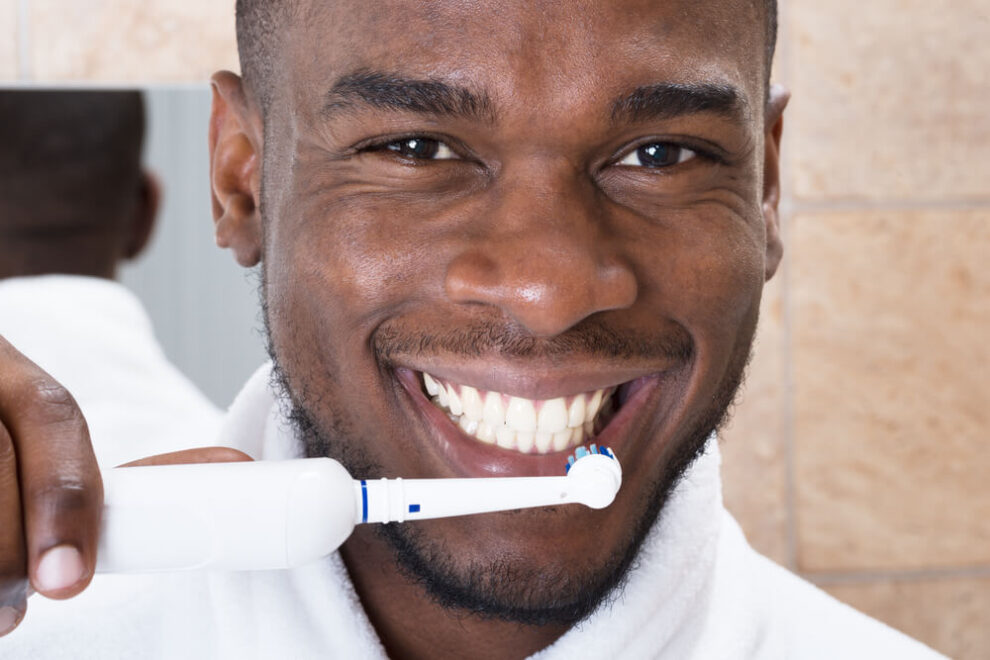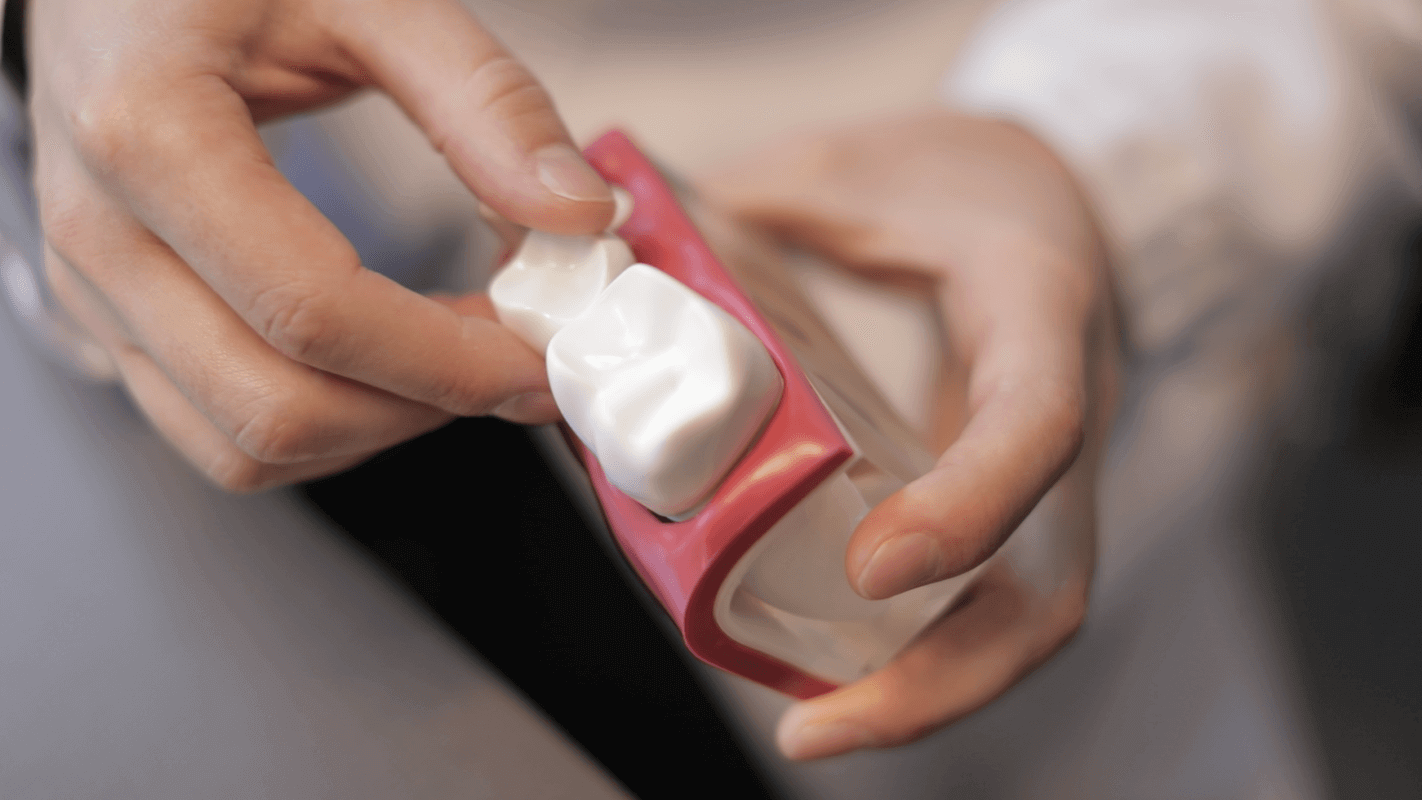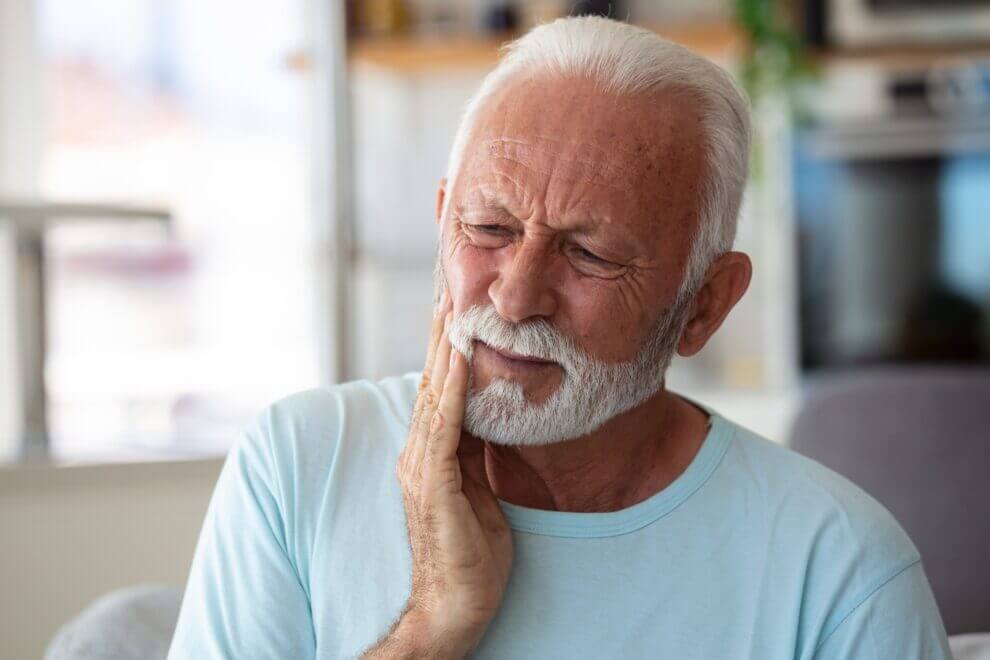Preventing and Treating Common Dental Problems

Cavities / Tooth Decay
Tooth decay is also known as cavities. Adult dental cavities are surprisingly common in modern times. Sugar is now in just about every food on supermarket shelves and play a major role in decay. What happens with tooth decay is that plaque forms as a result of sugars and starches left on the teeth. These plaque acids gradually dissolve the enamel of the teeth.
It is important to remove the plaque bacteria before it has the opportunity to turn into tartar. Once tartar forms, you will need the dentist’s specialized tools to scrape it off.
The best way to prevent tooth decay is by brushing twice a day, flossing daily, and going to your regular dental check-ups. Eating healthy foods and avoiding snacks and drinks that are high in sugar are also ways to prevent decay. Your dentist can recommend further treatments that may help reduce your risk.
Gum (Periodontal) Disease
Gum disease, also known as periodontal disease, is an infection of the gums surrounding the teeth. It is also one of the main causes of tooth loss among adults.
Everyone is at risk for gum disease, but it usually occurs after age 30. Smoking is one of the most significant risk factors. Diabetes and dry mouth also increase your risk. The symptoms include bad breath, red, swollen, tender, or bleeding gums, sensitive teeth, and painful chewing.
The two major stages of gum disease are gingivitis and periodontitis. Regular dental check-ups along with brushing at least twice a day and flossing daily play an important role in preventing gum disease. You should see your dentist if you have any signs of gum disease so you can get treatment to prevent further complications, such as tooth loss.


Teeth Grinding
Teeth grinding, also called bruxism, is often viewed as a harmless, though annoying, habit. Some people develop bruxism from an inability to deal with stress or anxiety.
Teeth grinding can literally transform your bite relationship and worse, severely damage your teeth and jaws over long periods of time. Teeth grinding can cause abrasion to the chewing surfaces of your teeth. This abnormal wear and tear will prematurely age and loosen your teeth, and open them to problems such as hypersensitivity (from the small cracks that form, exposing your dentin). Teeth grinding can also lead to chronic jaw and facial pain, as well as headaches.
Oral Cancer
Oral cancer is a serious and deadly disease that affects millions of people. The Oral Cancer Foundation estimates that someone in the United States dies every hour from oral cancer, but it is often curable if diagnosed and treated in the early stages. It is most often seen in people over the age of 40.
The biggest risk factors are tobacco and alcohol use, including chewing tobacco. HPV—a sexually transmitted wart virus—also increases the risk.
The symptoms of mouth or throat cancer include sores, lumps, or rough areas in the mouth. You may also have a change in your bite and difficulty chewing or moving your tongue or jaw.
Regular dental visits can help catch oral cancer early. You may ask your dentist whether an oral cancer exam is part of their usual checkup. If you notice any of the symptoms or have trouble chewing, swallowing, or moving your tongue or jaw, see your dentist.
Mouth Sores
There are several types of mouth sores and they can be pesky and bothersome. Unless a mouth sore lasts more than two weeks, it is usually nothing to worry about and will disappear on its own.
Common mouth sores are canker sores (aphthous ulcers) that occur inside the mouth and not on the lips. They are not contagious and can be triggered by many different causes. They are only a concern if they don’t go away after two weeks.
Fever blisters or cold sores are caused by the Herpes simplex virus and occur on the edge of the outer lips. They are contagious and will come and go but are not completely curable.
Mouth sores are also seen in oral thrush or candidiasis, a yeast infection of the mouth that can be seen in infants, denture wearers, people with diabetes, and during cancer treatment.
Tooth Erosion
Tooth erosion is the loss of tooth structure and is caused by acid attacking the enamel. Tooth erosion signs and symptoms can range from sensitivity to more severe problems such as cracking. Tooth erosion is more common than people might think, but it can also be easily prevented.
Symptoms of tooth enamel erosion

Tooth Sensitivity
Tooth sensitivity is a common problem that affects millions of people. Basically, tooth sensitivity involves experiencing pain or discomfort to your teeth from sweets, cold air, hot drinks, cold drinks or ice cream. Some people with sensitive teeth even experience discomfort from brushing and flossing. The good news is that sensitive teeth can be treated.
Sensitive teeth can also be a sign of a cracked tooth or a tooth abscess, which needs to be treated by your dentist to prevent losing a tooth or getting an infection in your jaw bone. If you suddenly develop tooth sensitivity, make an appointment with your dentist to see if there is a source that needs to be treated.
Toothaches and Dental Emergencies
While many toothaches and dental emergencies can be easily avoided just by regular visits to the dentist, accidents can and do happen. Having a dental emergency can be very painful and scary. Common problems that require an urgent trip to your dentist include a broken or cracked tooth, an abscessed tooth, or a tooth knocked out in an accident. Go to a hospital for trauma care if you have a fractured or dislocated jaw or severe cuts to your tongue, lips, or mouth. If you have a tooth abscess that is causing difficulty swallowing or you have developed a fever or facial swelling, get emergency care as well.
Smile Issues
Issues of smiling may technically not be a dental issue but it is a major reason that an adult would seek a solution. When someone cannot smile it will affect their self view and potentially lower their self-esteem. At Brookline Dental Specialists we provide smile assessments to determine what would be the best direction. Your treatment plan may consist of many cosmetic and functionally restorative procedures, potentially including teeth whitening, composite bonding, veneers, dental crowns, and orthodontics. The cosmetic dentists at Brookline Dental Specialists are dedicated to making your smile makeover experience a positive one.

